
16 Tips for Battling Culture Shock on Asia Cruises


You've just booked your first cruise to Asia. Congratulations!
But let us guess: You're a tad worried about visiting cultures that can be radically different from yours, right?
Never fear -- we've got you covered. Whether you're wondering about credit cards in China, high-tech toilets in Japan or a whole host of new experiences throughout Asia that can lead to culture shock, our handy guide will get you through your trip with ease.
While reading these suggestions, remember this: Locals won't expect you to be perfect. A smile will always take you a long way. And part of the reason you travel is to experience different things, right?
Here are our 16 top tips for handling culture shock in Asia.
1. Learn to Bow
While you might be used to shaking hands, it's not typically the practice in some Asian countries. In Japan, for example, it's traditional to bow. In terms of etiquette, younger people or those of lower status usually bow lower than the other person. So a sales clerk at a shop is going to bow quite deeply when you make a purchase. (We have to admit, it's kind of nice to be treated like royalty!) If someone bows to you, just return the gesture, but don't feel like you need to fold up at the waist -- a simple head-nod will usually do the trick.
Bowing is also traditional in South Korea. In Thailand, residents greet you by putting their hands in a prayer position; it's polite to return the gesture. This is also a typical greeting in Bali. In other countries, shaking hands is more common, but Asians usually exchange a limp handshake -- so no knuckle-crunching! In general, don't shake a woman's hand unless she offers it to you first.
Avoid touching people's heads, and never touch a Buddhist monk or nun. In some places (Indonesia and Malaysia, for example), the left hand is considered unclean, so don't touch people or give them things with your left hand.
2. Use Two Hands
In many Asian countries, exchanges involving money, credit cards and business cards are accorded more respect than in the U.S. So, in Japan and other countries, use both hands when presenting your credit card or cash for payment. Ditto business cards. Receive them with both hands, too.
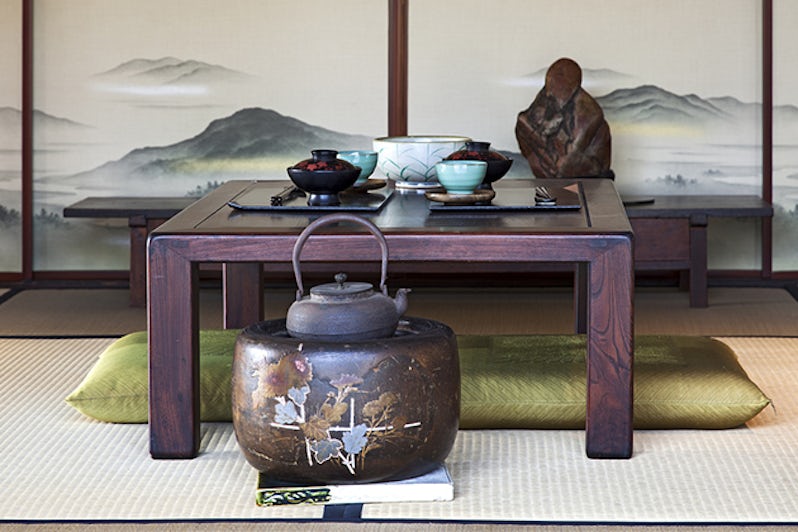
3. Lose the Shoes
You'll have to remove your shoes in many instances: when visiting temples or other holy places, inside some buildings, in traditional hotel rooms or inns, and almost always in private homes. In Japan, never walk on tatami (the woven straw floor mats) with shoes. Just follow the lead of your guide or look to see whether there are racks for shoes when entering a temple. Consider wearing shoes that are easy to slide on and off. Also, wear socks if you don't want to be padding around in bare feet.
In some situations, in Japan and South Korea, you might be given slippers to wear when you take off your shoes. This will usually be at a private home or possibly at a restaurant. You might also see toilet slippers at the entry to a bathroom. You change into these for use only inside the bathroom.
4. Prepare for Squat Toilets
While Western-style toilets are becoming more and more the norm in Asia, you'll probably encounter the dreaded squat toilets during your trip. If you're in a public restroom with lots of stalls, chances are there will be a Western toilet in there somewhere -- just check for it. Sometimes pictures on the stall doors indicate the type of fixture. Shore excursions will usually schedule a bathroom break at a spot with Western toilets, but if you're on your own, look for a hotel, department store or Starbucks to find the porcelain thrones you're used to.
On the opposite end of the spectrum from the squatters, you'll see the high-tech wonder toilets that are spreading across Japan and other parts of Asia. These can have heated seats, cleansing water that shoots in several directions, a recorded flushing sound that masks the melody of you doing your business, plus more astonishing features. The control panel will usually be to your left and is rarely in English. Pictures will help you figure out some of the functions. One important thing to note: The cleansing water usually will keep squirting until you hit a "Stop" button (we learned the hard way).
It's always a good idea to carry tissues or toilet paper with you, because availability can vary. In some places (particularly in South Korea), you pick up the paper before entering the stall. It's quite common in Asia that toilet paper is not flushed but put in a waste bin next to the toilet because plumbing can't handle it. If you see that others have discarded their toilet paper in a bin, you should do the same.
It's a good idea to carry hand sanitizer because soap availability can vary -- or, as in South Korea, there can be a communal bar of soap.
5. Take it Down a Notch
In general, Asians are quieter and more reserved than Americans. So, be low-key in both voice and actions. It may not be considered polite to ask too many personal questions, either. In many Asian societies, fitting in is considered more important than standing out as an individual.
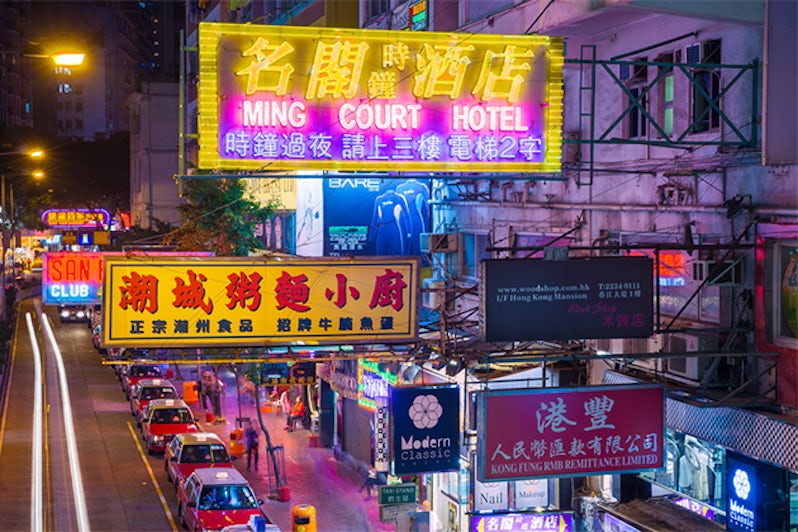
6. Know Your Hotel's Location -- in Local Characters
In many foreign countries, if you don't speak the language, you can at least read the names of things. That's not necessarily the case in Asia, although you'll usually be able to find some information at train and subway stations that's written in Roman alphabet characters. Hong Kong's British heritage means street signs are bilingual, and big cities in Japan and other countries often have bilingual signs for major streets in areas tourists frequent.
If you're staying at a hotel, be sure to get the hotel's card, with its address written in the local characters, though, before you set foot outside. Many cards will also have a tiny map of the hotel's location. Note if you're near a subway stop or other landmark that can help taxi drivers find a hotel that's less well-known. If you make reservations online, print out the map that usually is included with your reservation information, as well as your confirmation in the local language. Have the hotel's telephone number handy, so your driver can call for directions if he's having trouble finding the location.
If you're day-tripping from a ship, the cruise line should provide information in the local language that you can give to cab drivers to get you back to the pier. Often this is included in the daily bulletin. Trust us -- don't go off on your own without it!
7. Right Isn't Always Right
In several Asian countries vehicles drive on the left, rather than the right as they do in the U.S. Heads-up when you're crossing the street or catching public transportation. Everything will be coming from the opposite direction you'd expect. Even when you're boarding a tour bus, in some places the door is going to be on the opposite side from what you're used to back home. Where they drive on the left: Thailand, Japan, Hong Kong, Singapore, Indonesia and Malaysia. Where they drive on the right: Taiwan, South Korea, China, Burma (Myanmar), Vietnam, Cambodia and Laos.
8. Don't Be Alarmed if Locals Are Curious About You
Got blond or red hair? Blue eyes? Adorable kids? You may well find yourself the object of attention in regions where residents see fewer foreigners. Just enjoy the friendly curiosity. You might even be asked to pose for photos with complete strangers. Pretend you're a Kardashian for a day!
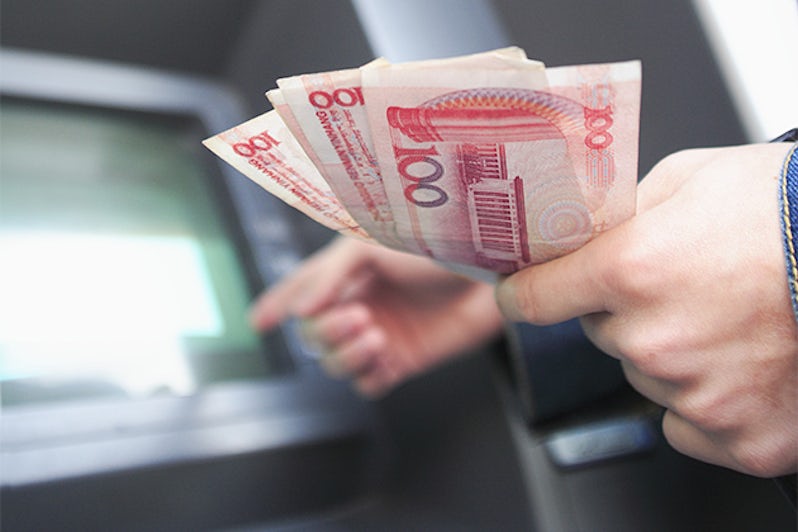
9. Don't Rely on ATMs Ashore
Check for the availability of foreigner-friendly ATMs where you're visiting. In Japan, for example, you should be able to use your ATM card in machines at 7-Eleven shops and Narita airport but not always at other spots. In some places (China, for example), ATMs might use six-digit pins instead of four-digit ones. ATMs in Cambodia typically dole out U.S. dollars. In Hong Kong and major cities in Thailand, Malaysia and Indonesia, ATMs are usually tourist-friendly. In Burma (Myanmar), you'll be hard-pressed to find an ATM that both works and accepts your card. We've found that fees for ATM use in Asia are on the rise, with charges of $5 or so for a withdrawal not uncommon.
Quite often, ships will either do currency exchanges onboard or arrange with the tourist office to have a currency-exchange system at the pier. Don't bother to exchange currency in Cambodia or Burma (Myanmar) -- people will happily accept U.S. dollars. In Burma (Myanmar), the bills should be in pristine condition, without folds, tears or dirt. The higher the denomination, the pickier vendors are about the condition.
10. Plastic is OK, But Have Cash Handy
You should have no trouble using credit cards at upscale shops, restaurants and hotels -- particularly those used to catering to tourists. The exception to that is Burma (Myanmar), where few establishments accept credit cards. For smaller vendors in any country, cash is king.
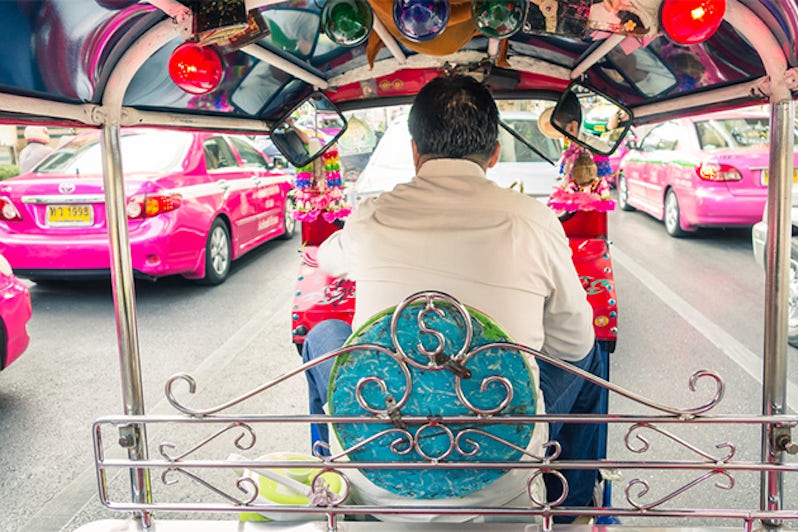
11. Tip in Some Places But Not in Others
Tipping styles vary throughout Asia, from "absolutely not" in Japan and South Korea to "yes, please" in other countries' major cities and tourist zones. Often, throughout Asia, there will be a service charge added to hotel and restaurant bills. (If you see the words "plus-plus," it means plus both tax and service charge.)
In Hong Kong, round up your cab fare and give a small tip to bellboys. In restaurants, a service charge usually is added, so just leave a small token amount unless you're at a high-end spot, where an additional 10 percent is becoming the norm.
In Vietnam, Laos and China, tourist restaurants will expect you to toss in a 5 to 10 percent tip, and rounding up a taxi fare is also common.
In Thailand, tip bellboys at upscale hotels about the amount you would at home. Most restaurants add a 10 percent service charge, so just round up the bill with change. Driving a taxi in Bangkok's traffic is a thankless job, and fares are low. So, while residents usually round up the tab, we kick in a little extra if the driver has been patient and polite. If you visit a spa or get a massage, be generous because the workers depend on tips.
Taiwan establishments usually add a 10 percent service charge, so it's common to tip bellboys and to round up taxi fares only if you wish, unless you've negotiated a flat rate.
In Indonesia and Malaysia, tips are not necessarily expected, aside from tourist areas. You can leave the change at a restaurant, give a modest tip to bellboys and round up the taxi fare, unless you've negotiated a flat rate.
Tips aren't expected in Singapore, aside from bellboys, who you can tip much as you would at home. You can round up a taxi fare or leave the change in a restaurant, though.
Tour guides often count heavily on tips, so be sure to reward them for a good job.
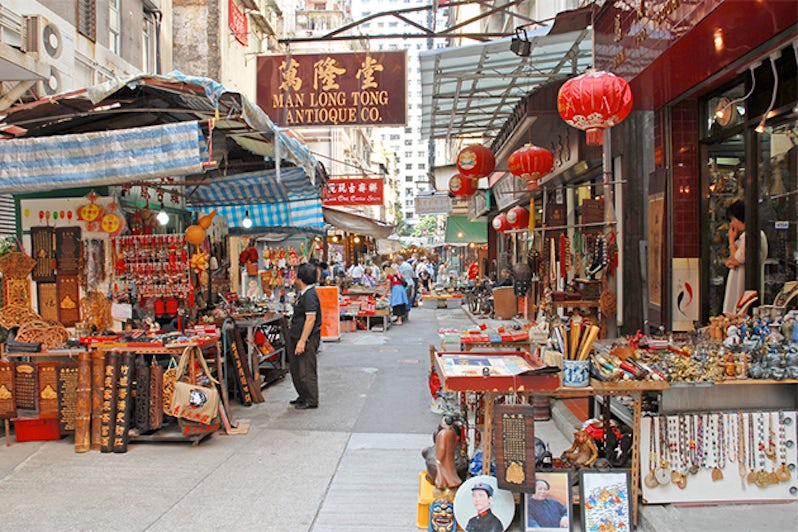
12. Bargaining is Usually OK
In most Asian countries, bargaining is the norm. We don't necessarily mean at high-end boutiques but certainly at markets and with taxi drivers who don't want to use the meter. Even smaller shops will often knock down the price if you ask or hesitate to buy.
You'll soon get a feel for how starting prices compare with what sellers are willing to accept. In haggle-happy Hong Kong's big markets, offer a third of what the vendor is asking, and don't budge much from that. In other countries, there may be less wiggle room. Bottom line: Decide what an item is worth to you, and don't take the negotiations personally. Treat it like an interesting opportunity to interact with a local. We've even chatted about families and kids with vendors in places like Burma (Myanmar) and come away with great memories as well as great souvenirs.
13. Be Polite
In most Asian countries the concept of "saving face" is important. People will go out of their way to avoid being embarrassed or getting "put in a corner." So you may find that someone in Japan will prevaricate rather than flat-out saying "no" to a request -- when the answer really is "no." Likewise, threatening or blustering at someone will rarely result in the outcome that you desire. On the other hand, politeness, gentle persuasion, civility and a smile can take you far.
14. Beware of Food (and Water)
Asia is a wonderland of different cuisines and ingredients. Don't be afraid to taste things that are new and unusual to you. If you eat ashore, you'll probably encounter mystery food. What the heck, try it! What's more, it's likely that Asian food in Asia is going to be different from the Asian food you're used to in the U.S. Thai dishes will be a lot spicier (ask for mild spicing or farang -- "foreigner" style), while dishes in other countries may be funkier, with fish sauce and other fermented ingredients. If you want to try street food -- a great Asian tradition -- look for stalls where cleanliness is evident and residents are lined up. If you want to be extra careful, make sure the items you eat are piping hot.
Can you drink the water? Water quality varies from country to country and from city to city. The answer is a solid "no" in many places -- so grab a bottle before you go down the gangway. If you buy water ashore, make sure the seal is unbroken.
Have allergies? Get someone to write down the offending food for you in the local language before you go ashore. Asian crew members are available aboard most ships, and multilingual tourism reps often meet ships on the pier.
If you're a real foodie and want to find out about up-to-the-minute food action, look online for a local English-language newspaper website. Most Asian countries have them. In foodie havens like Singapore and Penang, Malaysia, you can read reviews from plenty of local food bloggers who write in English.
Each country has its own dining etiquette, so read up if you're going to be spending several days ashore. In several countries, it's considered horribly rude to blow your nose when at, or near, a dining table. Also, you should be aware of the many social conventions regarding the use of chopsticks, particularly in Japan.

15. Embrace Bad Habits
In countries where people chew betel nuts, you probably will see red splotches on the pavement where people have spit. Particularly in countries with a large Chinese population, spitting is common (with or without betel nuts). The exception is Singapore, where there's a stiff fine for spitting -- so beware. You can also be fined for littering there, including cigarette butts.
And while we're on the topic of habits that might be a little creepy to Americans, chances are, you'll see nose-picking in public and people using toothpicks at the table in restaurants. In some Asian countries (China in particular), the sense of personal space is also quite different from the U.S. You may encounter crowding and pushing, particularly around public transportation.
16. Avoid Scams
While Japan ranks as one of the safest places in the world (nobody even bothers to lock a bicycle on the streets of Tokyo!), in other Asian countries you might encounter scammers. Cab drivers in Ho Chi Minh City, emerald-hustlers in Bangkok, "jade"-sellers in Hong Kong, fake travel agents in Hanoi and new "friends" who invite you to tea in China, leaving you stuck with an outrageous restaurant bill.
In general, don't get in a cab without making sure the driver starts the meter or negotiating the exact fare up front. In the case of negotiated fares, don't be afraid to bargain.
If someone approaches you on the street, they might just want to help if you're looking lost -- but beware of anyone being overly chummy, offering you free transportation to a shopping area or inviting you to dine or drink.
In some countries, you'll encounter children begging or selling little trinkets. These are often organized groups run by an adult who takes most of what the kids bring in. Experts advise that you should not purchase items or give money to youngsters, no matter how much they melt your heart. They say it only perpetuates adults taking advantage of them and results in more children being diverted from school into these activities. If you truly want to help, make a donation to a charity that's highly rated by Charity Navigator.